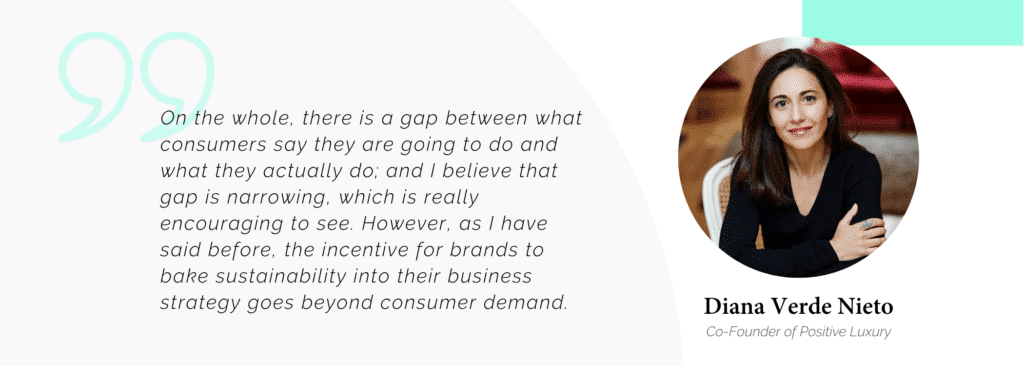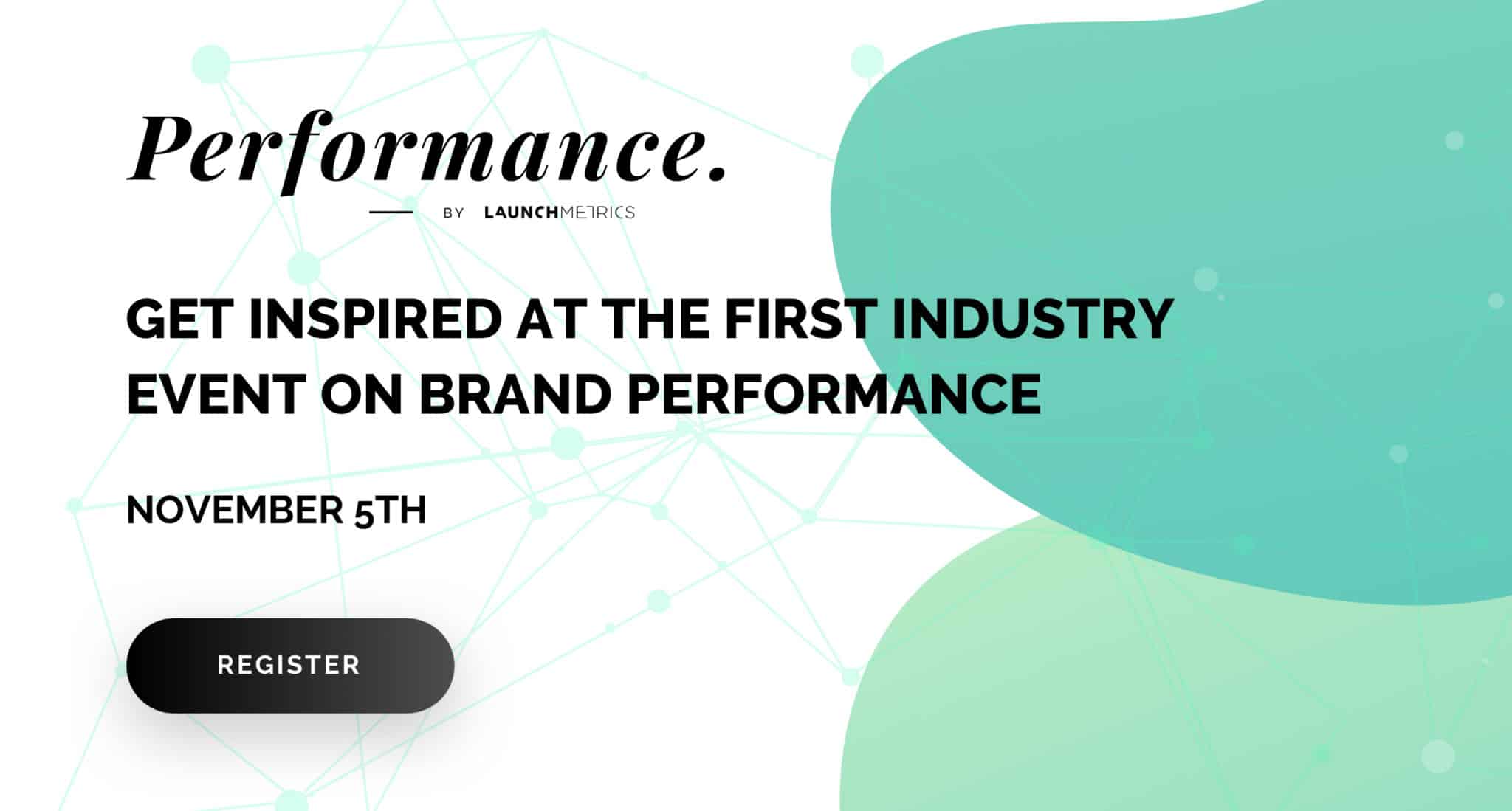According to statistics from the United Nations, the apparel industry consumes more energy than the aviation and shipping industry combined. Accounting for 10% of global carbon emissions, the fashion industry has been a big contributor to wastewater, greenhouse gas emissions, and textile waste due to lack of recycling or underutilization. Beyond waste and emissions, corporate governance and fair working conditions have also become key topics as brands are put under the spotlight for discrimination and not paying garment workers in some cases. If there was ever a question of whether the fashion industry should strive to be sustainable and drive social awareness, consumers seem to have answered loudly during the Covid pandemic.
We spoke to Diana Verde Nieto, Co-founder of Positive Luxury, the company behind the unique Butterfly Mark, to see how she views the future of sustainability within the Fashion, Luxury, and Beauty industry post-COVID.
What opportunities have arisen as a result of COVID, for brands to move towards more sustainable fashion practices?
Covid-19 has given brands a license to innovate and fail quickly, and then try something else. The most avant-garde brands are innovating in the area of sustainability. They might be trying different business models, or trialing different formulations and packaging, for example. The biggest shift we have seen during Covid-19 is that sustainability is now driven from the top down. The C-suite understands there is a strong link between the valuation and financial performance of a business and sustainability. We really hope this trajectory persists in a post-Covid-19 world.
Do you think that consumer demands have shifted to focus more on issues such as sustainability following/during a serious global pandemic?
On the whole, there is a gap between what consumers say they are going to do and what they actually do; and I believe that gap is narrowing, which is really encouraging to see. However, as I have said before, the incentive for brands to bake sustainability into their business strategy goes beyond consumer demand.

The emphasis on sustainability as a key purchasing decision
While Diana points out that sustainability within businesses goes beyond consumer demand, it’s worth noting that amid the pandemic, consumers overwhelmingly believe that it is even more important to limit impacts on climate change. Research by McKinsey & Company showed that of the 2,000 consumers they surveyed, 57% have made significant changes to their lifestyles to reduce their environmental impact. Additionally, 67% consider the use of sustainable materials to be a critical purchasing factor, and 63% take into account a brand’s promotion of sustainability, making it evident that brands need to recognize that consumers are making a conscious decision to purchase from sustainable fashion players.
Patagonia’s mission statement made it clear that they are in business to save our home planet. The outdoor brand perfectly embodies what it means to be purpose-driven and the brand’s $1 billion value success has proven that doing good for the environment can also be good for business.
The shift in consumer purchasing behavior
It doesn’t come as a surprise that consumers have reduced spending on discretionary items during the pandemic. Not only that, according to McKinsey’s research, 65% of consumers surveyed state that they plan to purchase more durable fashion items. Theses shifts in consumer purchasing behavior demonstrate an opportunity for brands to create products with eco-friendly materials that can withstand prolonged use. Reebok dropped their first plant-based running shoe last week, featuring key ingredients like castor beans, eucalyptus trees, and rubber trees. The activewear brand promises that the plant-based runners can perform as well as traditional runners and offers the same durability- a perfect case study on how fashion brands can revitalize a product category by focusing on being sustainable following COVID.
View this post on Instagram
The rise of the circular economy
The secondhand market for luxury goods has become the fastest growing area for the luxury industry. It is estimated that in 2021, the market will drive $36 billion in revenue. Through the McKinsey survey, around 50% of Gen Z and millennials expect to purchase secondhand fashion items after COVID, making it evident that there is a major opportunity for fashion brands to enter the circular economy. As Gucci follows Burberry and Stella McCartney’s footsteps and forms their latest partnership with The RealReal, these luxury brands have showcased that consignment marketplaces can complement brands by offering them a platform that not only extends garment life but also a new consumer demographic.
Whether brands focus on creating a leaner and greener supply chain and logistics operation, invest in more renewable and regenerative fibers, introduce fair labor and better working conditions, or focus on building a sustainable retail environment, a shift towards sustainable practices will prove to be essential for fashion, luxury, and beauty brands to succeed in the long-term. It is vital for brands to build a foundation that offers authenticity and transparency to their company’s values in order to ensure credibility and brand loyalty.
If you want more insights into how companies can adopt more responsible business practices, read the quarterly Focus Report by Positive Luxury. Diana Verde Nieto, Co-Founder of Positive Luxury, will also be joining other key speakers in the industry to discuss the Opportunities for Sustainability and Rebuilding a More Environmentally Conscious Industry during our Performance 2020 summit. Sign up for free and reserve your spot today! 

